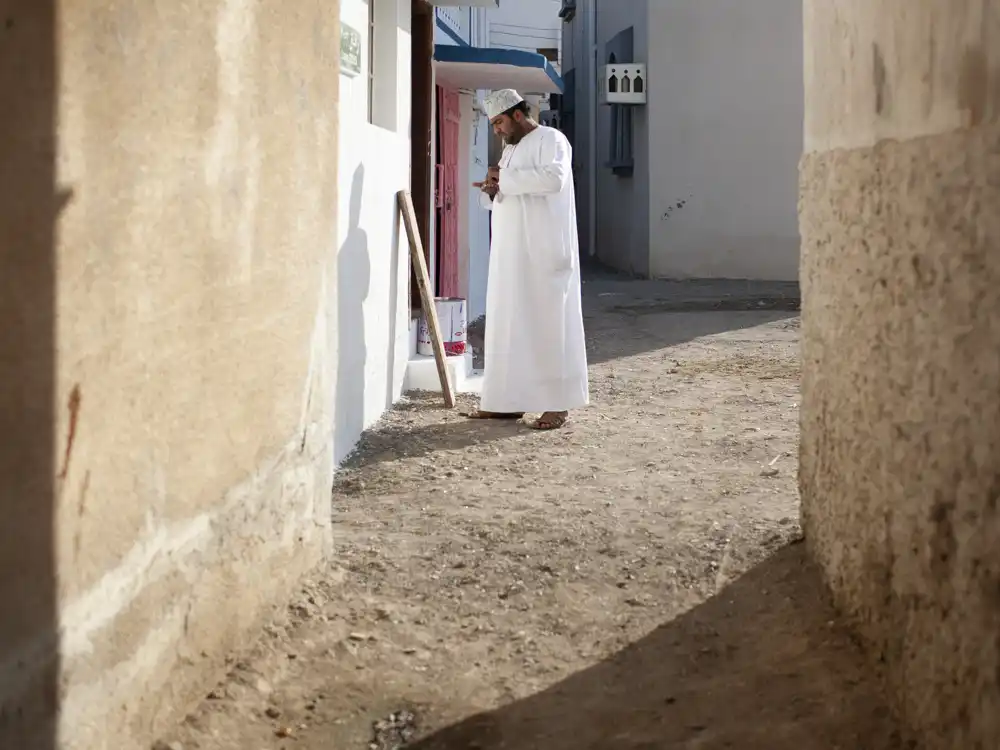Oman Street is not just about sultanic splendor and dramatic deserts. It’s also about everyday people, their customs, and a tranquil way of life. During our visit, we decided to stray off the beaten path to discover how Omanis really live. And trust me, it wasn’t just about fish and tea… although tea was everywhere.
Mina al Fahal Fishing Village: Where the Air Smells of Fish and Sunshine
A short distance from Muscat, we stumbled upon the fishing village of Mina al Fahal. From afar, it was clear that life here revolves around the coast. On small boats that seemed to have weathered countless storms, fishermen unloaded their catch—ranging from tiny fish to sea creatures so massive that we doubted their legality.
The atmosphere was lively, chaotic, and irresistible. Everywhere, people talked, gestured, and—most importantly—haggled. The locals have a knack for convincing you that a kilo of fish is exactly what you need for happiness, even if you have no idea what to do with it.
Kumma and Dishdasha


The road to better understanding begins with blending in. Our first stop was the bazaar, where we invested in Oman’s traditional dishdasha—long white robes for men—and adorned our heads with a kumma, the intricately embroidered cap that Omani men wear as part of their daily attire. The kumma’s design varies by region and personal taste, much like a Slovak folk costume. While Omanis sometimes wear a turban called a massar, the kumma is more practical for daily wear—and, honestly, tying a massar was beyond our skill level.
“Welcome,” strangers said to us as if we were old friends. The traditional attire is a symbol of identity and respect for Omanis. When a foreigner wears it, it’s like saying, “I appreciate and admire your culture.”
The Fish Market
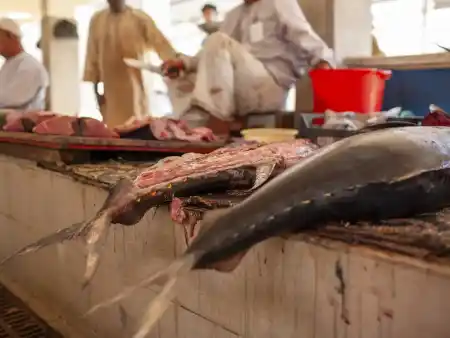
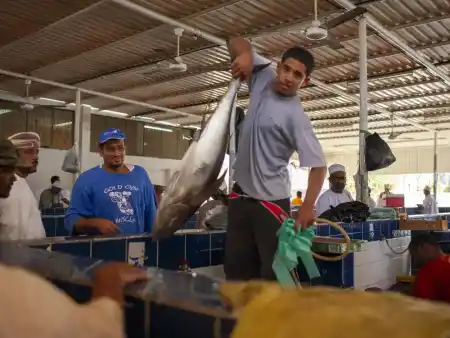


Fish as Far as the Eye Can See
If you think a fish market is just about buying fish, think again. The Omani fish market is a spectacle. Vendors shout prices, the air is filled with the scent (and stench) of the sea, and if you pause for a moment, you’ll suddenly find a fish in your hands with someone asking, “How much will you pay?”
Even though we didn’t buy anything (what would we do with a tuna in a hotel room?), we thoroughly enjoyed the show. One vendor even invited us for tea amid crates full of shrimp.

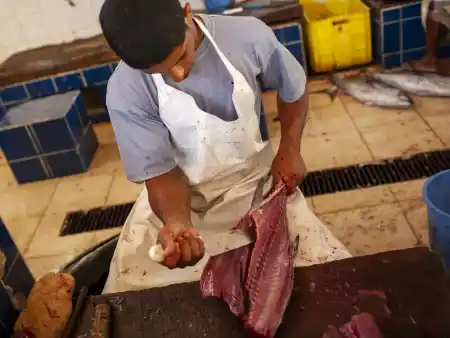


The Bazaar: A Place Where You Shop with a Smile
Mutrah Souq, the bazaar near Muscat, is like a labyrinth full of treasures. You walk in thinking you’ll just “have a look” and emerge half an hour later with frankincense, a silver bracelet, a scarf, spices, detergent, and maybe even a dagger.




Omanis love to haggle, and if you’re good at it, you’ll get a deal worth bragging about for weeks. We were told we were quite good—though that likely meant we paid only twice the actual price. But even if you’re not skilled at bargaining, vendors will smile, shave a bit off the price, and make you feel like you’ve just made the deal of the century, even if you paid four times more than you should have.
Hidden Alleys: Where the Real Oman Lives
The most memorable moments of our trip happened in the hidden alleys, far from the main tourist areas. We discovered old tea shops with tiny tables where people sat for hours. Conversations with locals we met there felt like a window into another world.



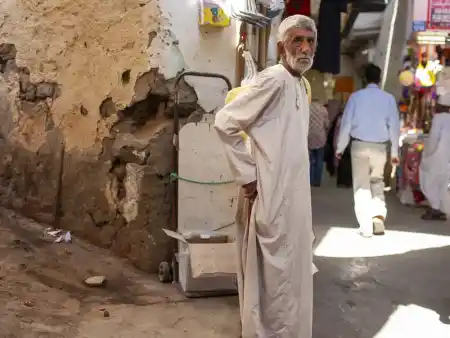
“What do you think of Oman?” one elderly man in a traditional turban asked us.
“It’s beautiful,” we replied.
“Yes,” he nodded with a smile. “And the tea is the best.”
Tea: Everywhere, Always, with Everyone
If there’s one thing that unites Omanis, it’s tea. Light, fragrant, and served everywhere, it’s always accompanied by a warm smile. Tea is central to life here—used to discuss everything from politics to the size of the latest catch. If someone sits down for tea with you, it means they’ve welcomed you into their world.
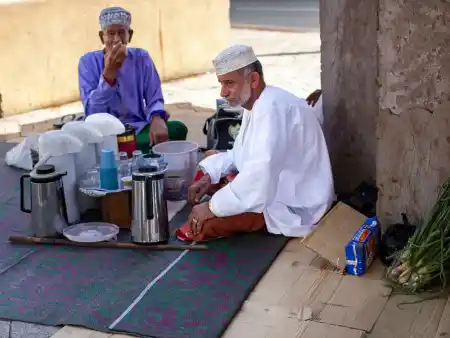
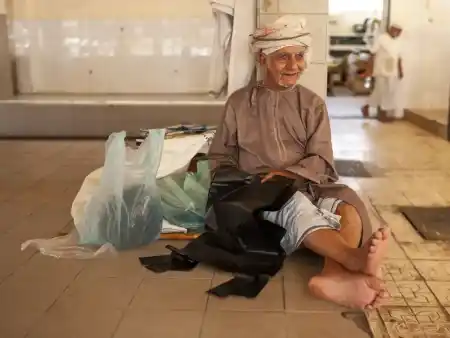
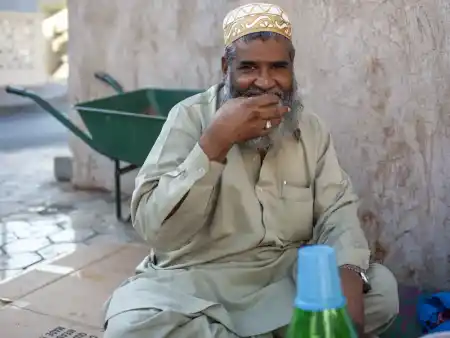

Oman Street: A Place Where Time Stands Still
Omani daily life is about simplicity, friendship, and hospitality. The bazaars, fish markets, and side streets each have their own unique smells, colors, and rhythms. Omanis are tolerant, kind, and know how to savor life—a lesson we could learn from them back home.
So, if you ever find yourself in Oman, sit down for a cup of tea, wander through the bazaars, and soak in the atmosphere. Who knows? You might walk away with a kilo of fish, a new dagger, and a lifelong friend.

